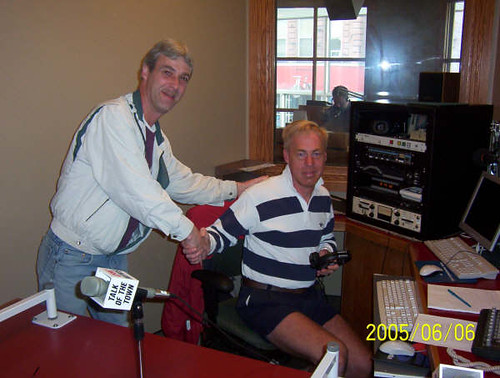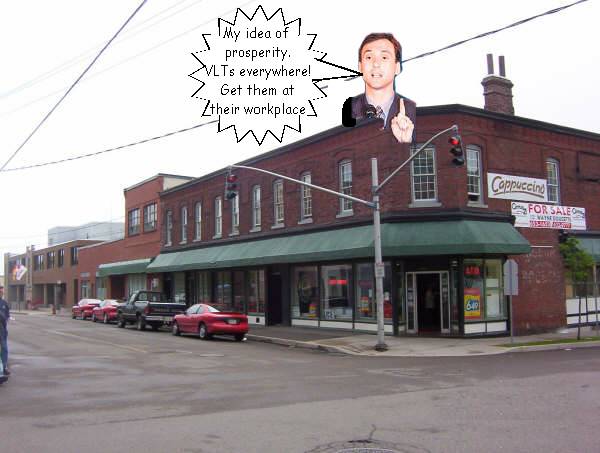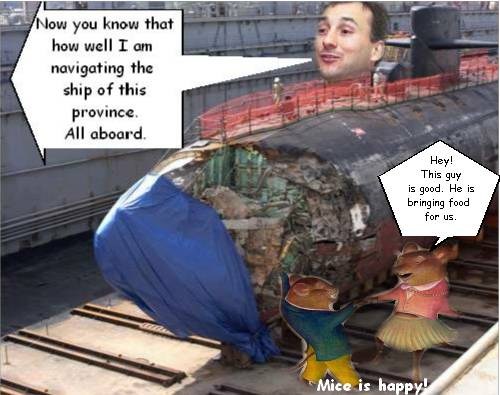P.S. During my six months protest, I heard many concerns about Ritalin from the people of Australia.

Safety concerns over ADHD drugs
PRINT FRIENDLY EMAIL STORY
The World Today - Monday, 19 September , 2005 12:26:00
Reporter: Julia Limb
ELEANOR HALL: Now to another health concern.
A new report into the drugs used to treat Attention Deficit Hyperactivity Disorder, or ADHD, has found there's little evidence that the drugs are effective or even safe.
With more than 50,000 Australian children being prescribed drugs for ADHD, the report from the Drug Effectiveness Review Project at the Oregon State University has once again raised concerns about the rates of prescription in Australia.
As Julia Limb reports, Australia is the third highest consumer of ADHD drugs in the world.
JUIA LIMB: With so many children now prescribed stimulants to treat ADHD, knowing how safe those drugs are is vital for parents.
This report by the Drug Effectiveness Review Project compared 2,200 studies into 16 drugs. Those looked at included Ritalin and Dexamphetamine, both of which are widely used in Australia.
The project found there was little evidence that the drugs were safe.
But Dr Paul Hutchins, who is the head of the Child Development Unit at Sydney's Children's Hospital at Westmead, says that should not ring alarm bells.
PAUL HUTCHINS: The study acknowledges that there are hundreds of studies on the medications Dexamphetamine and Methylphenidate, which treat the symptoms of ADHD and give improvement in 70 to 90 per cent of people. And there are many, many hundreds of studies which show that compared to a placebo the active drug is very effective and is safe.
JULIA LIMB: But Dr Hutchins says what the review shows is that overall there has been a lot of research on these drugs, even if they have not been directly compared.
And he says that there's no question that stimulants can be very effective in treating ADHD.
PAUL HUTCHINS: Just like glasses help you focus your eyes, medication for ADHD helps the brain focus what it does. It's much more than attention, it's to do with organisation of everything it does. And there are many studies which look at that and show that medication is effective.
The concerns of course, are if people take medications for a long time for any difference of disorder, are there side effects? And any treatment we only give when the benefits outweigh the side effects.
JULIA LIMB: But Dr Louise Newman from the New South Wales Institute of Psychiatry says the review again raises questions about how we treat ADHD.
LOUISE NEWMAN: We've known for some time, of course, that there are potential side effects and difficulties with some of the medication, and I think most clinicians would be aware that drugs are only ever one component of what should be a comprehensive management plan for children with this group of difficulties.
I think the issue has become difficult, because in the general community there's an expectation maybe that drugs are going to be the solution to what really is a complex problem.
I mean, we live in a society that would like quick and easy solutions, one medication that's going to be safe and cure the problem. And unfortunately what we're seeing is that that's not the case.
JULIA LIMB: Dr Newman says that more research is needed in Australia on how ADHD is treated, particularly as there is so much community concern about the high rate of prescribing stimulants.
And she says drugs like Ritalin and Dexamphetamine should not automatically be prescribed.
LOUISE NEWMAN: I think those of us who work in child and adolescent mental health overall are concerned that medication might be used as a first line treatment because of a lack of services, which is certainly very inappropriate.
If clinicians and doctors feel that there's no other option in helping difficult children and their families, then maybe medication rates rise as a result of that, which is not optimal.
What we need is much more in the way of integrated services and different approaches. We need to have children having access to psychological services for their problems, not only medication.
ELEANOR HALL: Dr Louise Newman from the New South Wales Institute of Psychiatry speaking to Julia Limb.




